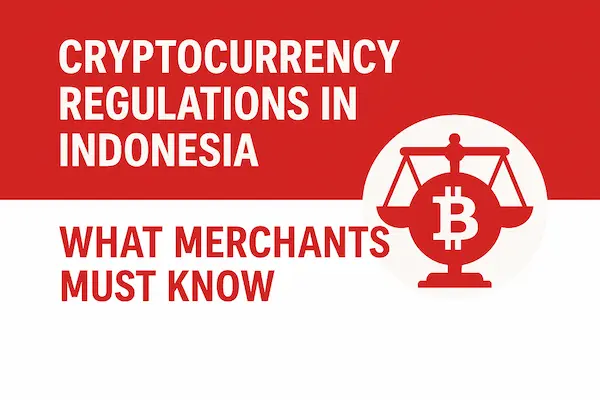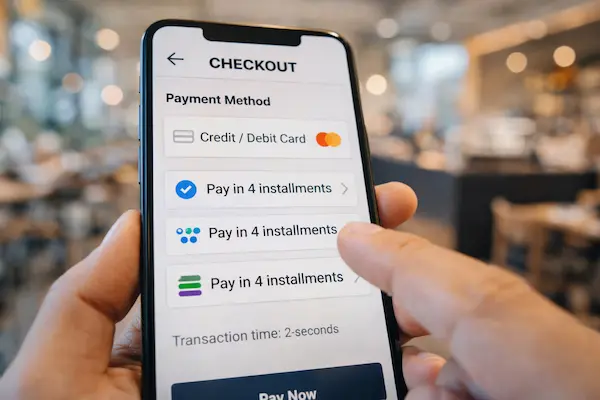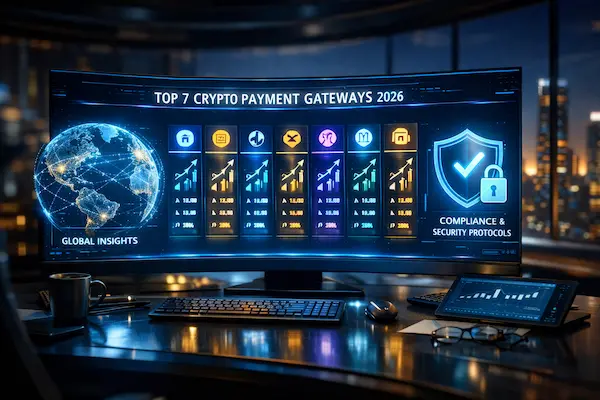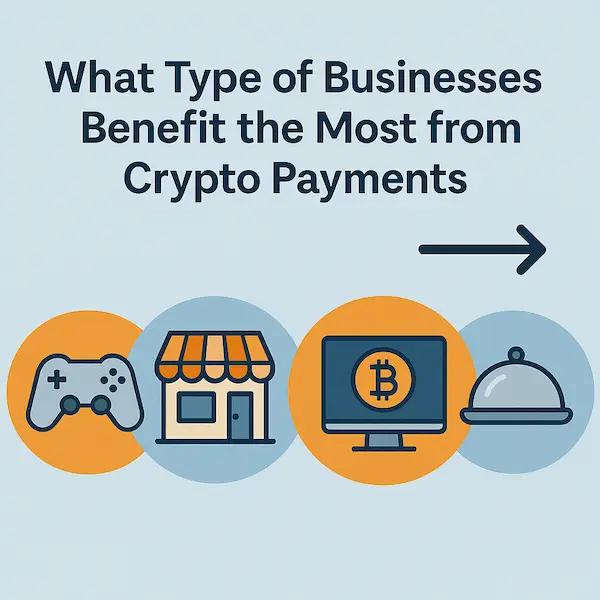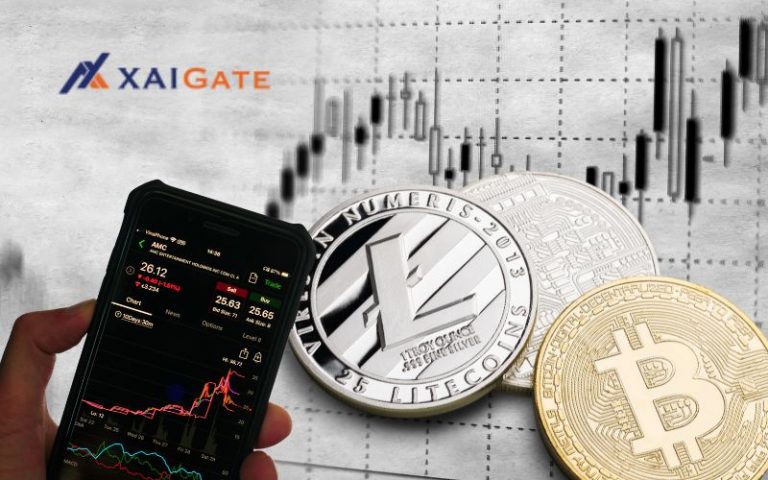Indonesia has quickly become one of Southeast Asia’s most dynamic hubs for digital innovation. From mobile banking to fintech apps, adoption rates are among the highest in the region. But when it comes to digital assets, the rules are far from straightforward. Cryptocurrency regulations in Indonesia remain a subject of debate, constant updates, and government scrutiny.
For merchants, this isn’t just theory – it directly impacts how they can operate. Whether you’re planning to accept stablecoins at checkout, trade Bitcoin as a commodity, or launch a licensed crypto platform, compliance is now a decisive factor. Misunderstanding the framework could mean fines, suspension of business licenses, or even criminal liability. On the other hand, those who master Indonesia’s crypto rules can position themselves at the heart of a rapidly expanding market.
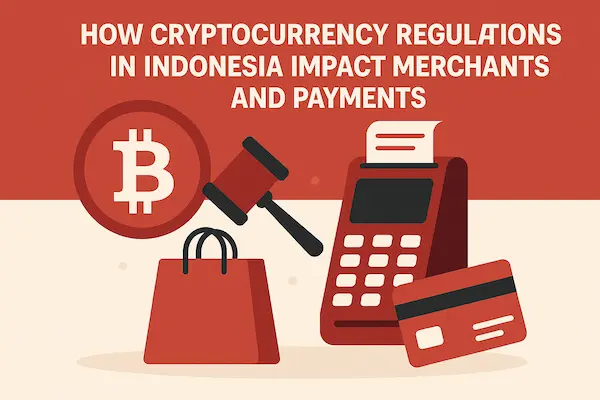
Contents
- 1 1. Legal Framework of Cryptocurrency in Indonesia
- 2 2. Taxation & Reporting Obligations in Indonesia
- 3 3. Indonesia vs Singapore: A Regulatory Comparison
- 4 4. Merchant Challenges & Compliance Risks
- 5 5. Pros and Cons of Crypto Regulations in Indonesia
- 6 6. Case Studies: How Merchants Navigate Indonesia’s Crypto Rules
- 7 7. Future Outlook for Cryptocurrency Regulations in Indonesia (2026–2030)
- 8 Frequently Asked Questions (FAQs)
- 9 Conclusion
1. Legal Framework of Cryptocurrency in Indonesia
When discussing cryptocurrency regulations in Indonesia, the first point to clarify is that crypto is not recognized as legal tender. The Indonesian rupiah remains the only lawful currency for payment across the country. However, this does not mean that crypto is entirely banned. Instead, it is officially treated as a commodity and supervised by Bappebti (Commodity Futures Trading Regulatory Agency).
This distinction is crucial. For merchants and investors, it means that crypto cannot be directly used to pay for goods and services, but it can be traded, stored, and invested under specific conditions. Bappebti acts as the gatekeeper, ensuring that only registered platforms can operate and that only approved digital assets are listed for trading.
1. Role of Bappebti
Bappebti sets the rules that form the backbone of the Indonesian crypto market:
Approving which cryptocurrencies can be legally traded.
Licensing exchanges and monitoring compliance.
Enforcing anti-money laundering (AML) and Know-Your-Customer (KYC) rules.
2. Key Legal Documents
Merchants looking to stay compliant must be familiar with the regulatory pillars:
Bappebti Regulation No. 5/2019 – a detailed list of approved crypto assets.
Financial reporting obligations – rules on trade data storage and submission.
AML & CFT laws – aligned with global standards to combat money laundering and terrorist financing.
In practice, this legal framework creates a paradox: while crypto is not money in Indonesia, it has been given a clear status as a tradable asset. For businesses, understanding this duality is the foundation for building long-term strategies.
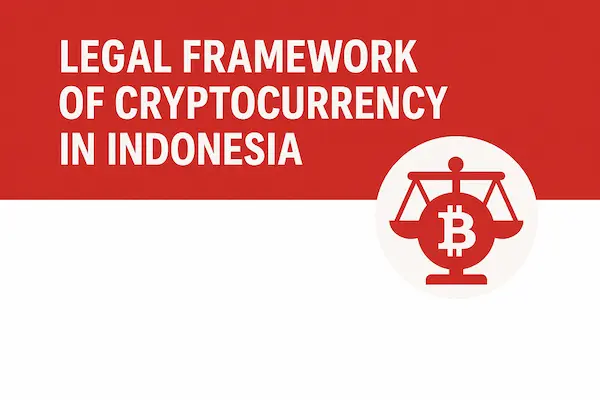
2. Taxation & Reporting Obligations in Indonesia
One of the most decisive aspects of cryptocurrency regulations in Indonesia is taxation. Since May 2022, the Indonesian government has officially imposed both Value-Added Tax (VAT) and Income Tax on cryptocurrency transactions. This makes Indonesia one of the few countries in Southeast Asia with a clearly defined tax framework for digital assets.
VAT and Income Tax Rules
Under current regulations:
VAT of 0.1% is applied to every cryptocurrency trade.
Income Tax of 0.1% is charged on the profits earned from those trades.
While the rates may appear small, they create a formal obligation for both traders and merchants. It signals that Indonesia views crypto as a legitimate commodity sector, worthy of oversight and revenue collection.
What Merchants Must Do
Merchants who plan to integrate crypto into their operations need to prepare for compliance in three ways:
Register for a Tax ID (NPWP) – without this, filing crypto-related taxes is impossible.
Maintain transparent records – all trading and payment activity must be properly documented.
Submit periodic reports – merchants are expected to file tax returns regularly, even if trading volumes are low.
For foreign investors and local businesses alike, this taxation system provides both clarity and pressure. On one hand, the state’s recognition of crypto through taxation adds legitimacy. On the other hand, it increases operational costs, making compliance non-negotiable.
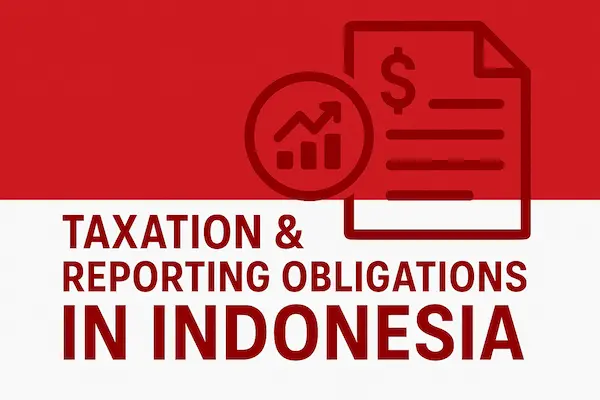
3. Indonesia vs Singapore: A Regulatory Comparison
To better understand cryptocurrency regulations in Indonesia, it helps to compare them with Singapore — one of Asia’s most crypto-friendly jurisdictions. While both countries regulate the sector, the tone and goals of their frameworks are very different.
Singapore, through the Monetary Authority of Singapore (MAS), has positioned itself as a global hub for digital assets. Its rules are designed to encourage innovation while keeping financial crime risks in check. Indonesia, by contrast, has taken a more conservative stance, treating crypto strictly as a tradable commodity rather than a currency.
Comparison Table 1 – Indonesia vs Singapore
| Aspect | Indonesia | Singapore |
|---|---|---|
| Legal Status | Commodity (not legal tender) | Recognized as digital payment tokens under the Payment Services Act (PSA) |
| Main Authority | Bappebti (Commodity Futures Trading Regulatory Agency) | MAS (Monetary Authority of Singapore) |
| Taxation | 0.1% VAT + 0.1% Income Tax on trades | No VAT, standard corporate tax applies |
| Merchant License | Mandatory for exchanges and crypto-related businesses | Mandatory licensing under PSA |
| AML/KYC Rules | Strict, based on FATF standards | Strict, with global compliance alignment |
This comparison highlights a central truth: cryptocurrency regulations in Indonesia are designed more for control and stability, whereas Singapore’s framework is built to attract innovation and investment. For merchants, this difference affects everything from tax planning to international partnerships.
As a contributor on fintech trends, I often explore how crypto is reshaping local markets. Read more at XaiGate’s Crypto Payment Gateway in Indonesia for Businesses.
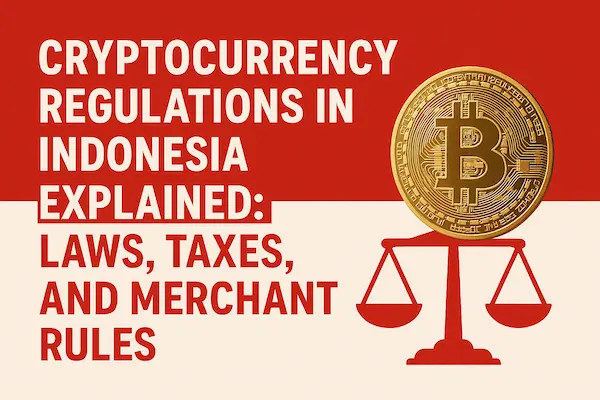
4. Merchant Challenges & Compliance Risks
While the legal framework and taxation rules provide some clarity, the reality for merchants is far from simple. Cryptocurrency regulations in Indonesia create both opportunities and obstacles, and businesses that fail to prepare may find themselves exposed to legal or financial penalties.
Legal Risks
The most pressing challenge is licensing. Any merchant or exchange that operates without approval from Bappebti risks heavy fines or even being shut down. Since crypto is not recognized as legal tender, using it directly for payments — for example, accepting Bitcoin or stablecoins instead of Rupiah — is technically prohibited. For merchants, this means they must carefully structure their operations to avoid crossing into illegal territory.
Operational Risks
Beyond the legal boundaries, merchants face ongoing operational difficulties:
Constant regulatory updates: Rules are frequently revised, requiring businesses to stay agile.
Compliance costs: Meeting reporting, taxation, and audit requirements adds overhead, especially for small companies.
Uncertainty for innovation: Merchants who want to experiment with blockchain-based payments often hesitate due to unclear long-term rules.
5. Pros and Cons of Crypto Regulations in Indonesia
Every regulatory framework comes with trade-offs, and Indonesia is no exception. For merchants and investors, understanding the benefits and drawbacks of the system is crucial before committing to long-term strategies.
Comparison Table 2 – Pros & Cons of Crypto Regulations in Indonesia
| Criteria | Pros | Cons |
|---|---|---|
| Legal Recognition | Provides clear status as a tradable commodity | Not recognized as legal tender, limiting payment use |
| Market Growth | Growing demand for crypto trading and investment | Merchants face restrictions in direct payment adoption |
| Taxation | Fixed, transparent rates (0.1% VAT + 0.1% Income Tax) | Increases overall costs for merchants and traders |
| Regulatory Clarity | Centralized under Bappebti, reducing overlap | Frequent policy updates create uncertainty |
This dual nature of cryptocurrency regulations in Indonesia is what makes the market both attractive and challenging. On one side, there is recognition and a growing investor base. On the other, the strict limits on payments and the constant evolution of policies require merchants to tread carefully.
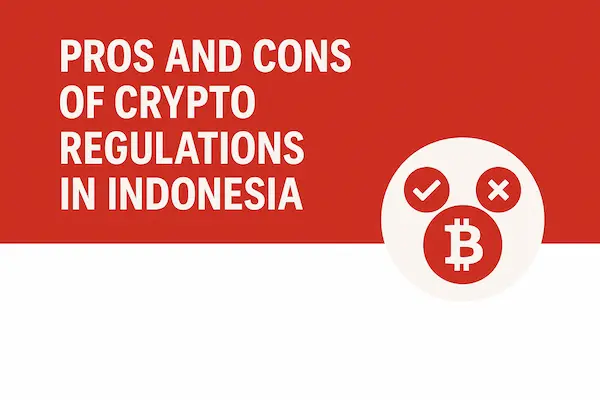
6. Case Studies: How Merchants Navigate Indonesia’s Crypto Rules
To see how cryptocurrency regulations in Indonesia affect real businesses, it’s helpful to look at actual merchant experiences.
Case Study 1: Local Exchange Expansion
A mid-sized crypto exchange based in Jakarta sought to expand services in 2023. To comply with Bappebti’s licensing requirements, the company invested heavily in AML/KYC infrastructure. Although initial costs were high, securing the license allowed them to attract institutional investors and gain user trust. Their revenue grew 40% within the first year, proving that compliance can be a competitive advantage.
Case Study 2: Retail Merchant Adoption
A Bali-based e-commerce store attempted to accept Bitcoin directly for product sales. The business quickly faced warnings, since crypto payments are prohibited as legal tender. By shifting strategy and partnering with a licensed crypto gateway that converts digital assets into Rupiah instantly, the merchant remained compliant while still offering a crypto-friendly checkout experience. This hybrid approach increased international sales without regulatory risk.
Case Study 3: International Remittance Startup
A fintech startup targeting Indonesian migrant workers tested blockchain-based remittance services. Initial pilot projects were slowed by tax obligations and Bappebti reporting requirements. However, by integrating with a regulated partner and applying the correct 0.1% VAT and 0.1% income tax, the startup reduced transaction costs by 20% compared to banks, while gaining approval to expand services nationwide.
Case Study 4: Hospitality Sector Innovation
A luxury resort chain explored crypto payments to attract foreign tourists. Direct crypto acceptance was not possible under Indonesian law, but by collaborating with a licensed payment processor, the resort allowed guests to pay in USDT and USDC. The processor instantly converted funds into Rupiah, ensuring compliance. The resort reported a 15% increase in high-value bookings from overseas customers within six months.
7. Future Outlook for Cryptocurrency Regulations in Indonesia (2026–2030)
Looking ahead, cryptocurrency regulations in Indonesia are unlikely to remain static. The government is balancing two priorities: protecting financial stability while fostering digital innovation. This balance will define how the rules evolve over the next five years.
1. Key Trends to Watch
CBDC Development: Bank Indonesia is actively researching a Central Bank Digital Currency (CBDC), often referred to as the “digital Rupiah.” If launched, it could transform how merchants interact with blockchain-based payments while reinforcing state control over currency.
Gradual Relaxation of Rules: Although crypto cannot currently be used for direct payments, pressure from global markets and domestic demand may lead to gradual policy shifts.
Integration with Fintech: As Indonesia’s fintech ecosystem grows, partnerships between regulated payment companies and crypto gateways are expected to expand.
2. Opportunities for Merchants
For forward-looking merchants, the next few years offer both risks and opportunities:
Stablecoin Integration: Businesses may increasingly rely on stablecoins as hedging tools, provided they operate through licensed platforms.
Cross-Border Trade: Indonesia’s large expatriate and remittance market could benefit from faster, cheaper blockchain transactions — if regulators open the door.
Partnerships with Licensed Gateways: Collaborating with compliant crypto payment solutions gives merchants a way to enter the market without overstepping legal boundaries.
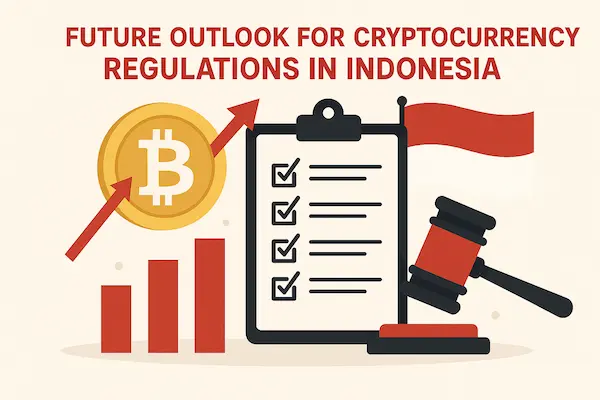
Frequently Asked Questions (FAQs)
1. Is cryptocurrency legal in Indonesia?
Yes. Cryptocurrency is legal in Indonesia but only as a tradable commodity, not as legal tender. Merchants can trade digital assets, but payments must still be made in Rupiah.
2. What is Bappebti’s role in crypto?
Bappebti regulates the market by licensing exchanges, approving which coins can be traded, and enforcing AML/KYC compliance.
3. Do merchants need a license to trade crypto?
Yes. Any business dealing with crypto must obtain a license from Bappebti before operating legally.
4. How is crypto taxed in Indonesia?
Transactions are subject to 0.1% VAT and 0.1% Income Tax, applied on both trades and profits.
5. Can crypto be used for payments in Indonesia?
No. Direct payments with Bitcoin, Ethereum, or stablecoins are not allowed. Only the Rupiah is recognized as legal tender.
6. Which cryptocurrencies are approved for trading?
Only assets listed under Bappebti Regulation No. 5/2019 are officially approved for trading in Indonesia.
7. Can merchants use stablecoins?
Yes, but only within licensed platforms and not as direct payment substitutes for the Rupiah.
8. What is the future outlook for crypto in Indonesia?
Indonesia may gradually relax rules, especially with the possible launch of a digital Rupiah (CBDC), which could reshape the market.
Conclusion
The story of cryptocurrency regulations in Indonesia is still unfolding. For now, crypto is treated as a commodity under Bappebti’s supervision, with clear tax obligations and strict compliance rules. Merchants who adapt quickly — by securing licenses, staying updated on reporting requirements, and working with trusted partners — will gain a head start in a market where rules continue to evolve.
Looking ahead, 2026 and beyond may bring significant changes. The potential launch of a digital Rupiah (CBDC) could redefine the payment ecosystem, while growing pressure from global markets may push Indonesia toward a more open stance on crypto adoption.
Quick Summary – Key Takeaways on Cryptocurrency Regulations in Indonesia
| Key Point | Insight |
|---|---|
| Legal Status | Crypto is legal only as a commodity, not legal tender |
| Regulator | Bappebti oversees exchanges and licenses |
| Taxation | 0.1% VAT + 0.1% Income Tax per transaction |
| Merchant Obligation | Licensing + reporting are mandatory |
| Future Outlook | Digital Rupiah (CBDC) may reshape the market |
If you’re a merchant planning to expand into Indonesia’s crypto market, don’t leave compliance to chance.
Partner with XaiGate – Crypto Payment Gateway for stablecoin solutions, cross-border payments, and merchant tools that align with local regulations.
XaiGate helps you stay ahead of shifting laws while unlocking the benefits of digital payments in one of Asia’s fastest-growing economies.
For daily updates, subscribe to XAIGATE’s blog!
We may also be found on GitHub, and X (@mxaigate)! Follow us!

